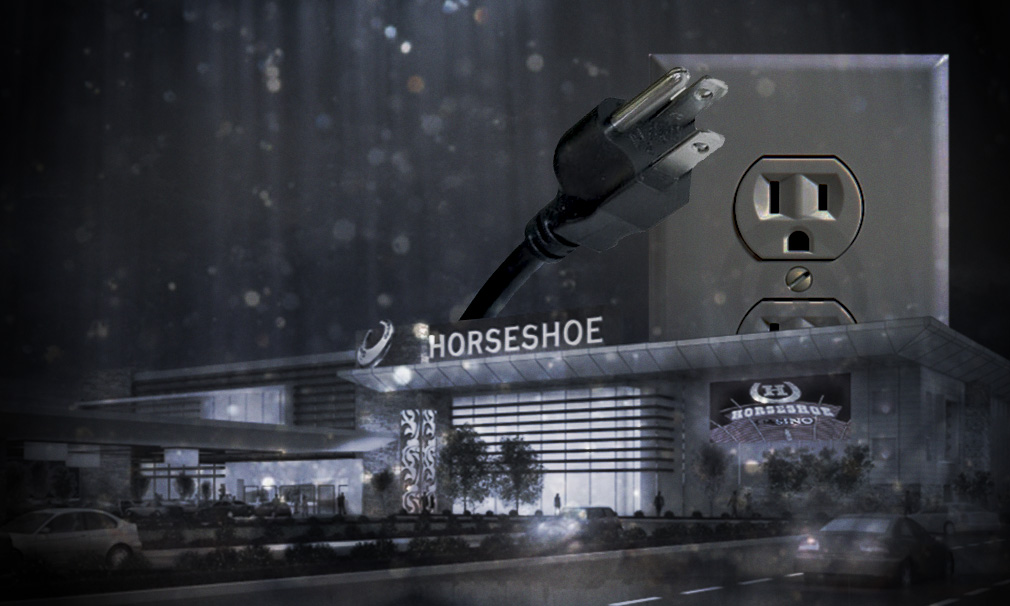Foxwoods team asks PGCB to reinstate its license
The team behind the Foxwoods Casino project has asked the Pennsylvania Gaming Control Board to give back its gaming license.
Monday, Philadelphia Entertainment Development Partners said it and Caesars – the prospective new partner – have resolved all the issues that led the board to revoke the license on Dec. 16. A petition to reconsider revocation and documention of the partnership agreement and financing was filed on Friday, said PEDP attorney Stephen A. Cozen.
“They had legitimate concerns, and we’ve met all their legitimate concerns,” Cozen said. But if the gaming board won’t consider reinstating the license, or if it considers, but stands by its original decision to revoke, PEDP will appeal to the courts, Cozen said.
The appeal process could take two to four years, Cozen said. PEDP is confident it would be successful in an appeal, he said, but a reconsideration of the order to revoke would take a lot less time and get a casino open in South Philadelphia much more quickly, he said. PEDP has about two weeks left in which to file an appeal.
The board rescinded the Category 2 license for failure to submit architectural drawings, site plans and a time line for opening; failure to submit definitive financial documents and a lack of financial fitness; and board members’ belief that there was no way PEDP could open a casino by the March 29, 2011 deadline.
Some of the deadlines that the board punished the Foxwoods team for not making were technically broken some time ago, but the board gave Foxwoods one last chance: It wanted to see definitive documents related to financing and the workings of the proposed partnership with Caesars by the December meeting.
The board determined the casino interests didn’t supply enough concrete evidence, despite assertions to the contrary by PEDP and Caesars attorneys. After the hearing, PEDP attorney Fred Jacoby said that the terms had all been met as far as they could be without further action from the board.
But PEDP and Caesars continued working together and with lenders after the license was revoked. Cozen said more detailed information was provided to the board with the latest filing. “As a for instance – what was presented to them originally – were some letters from banks saying they were highly confident they could place the project debt. Now, we actually have commitments for the project debt. So any conern the board had that the I’s weren’t dotted or the T’s weren’t crossed, any gaps or holes have been closed. We’ve given them everything and more that any reasonable person would want to be assured of that a signed agreement is in place between the parties for the timely development, construction, and ultimate operation for a casino project.”
In a written statement released Monday, PEDP and Caesars say: “The parties have confirmed that all documentation has been completed, commitments for all required debt and equity financing have been secured, and the parties are ready to pursue construction of the project immediately.”
The spring deadline to get Foxwoods open was the timeline limit in place for Foxwoods at the time the license was revoked. Foxwoods had requested an extension to December of this year, but the board had not voted on it.
Foxwoods attorneys have argued that PEDP had met some of the earlier deadlines for funding and plans last spring, when casino mogul Steve Wynn was interested in a partnership. Wynn produced drawings and site plans and financial documents, spoke to the gaming board and Philadelphia officials before deciding to walk away from the project.
Regardless, all deadlines have been met now, PEDP says. In its statement, PEDP says that “definitive agreements have been completed” and that under those, Caesars Entertainment has agreed to fund any shortfall in equity – or ownership – funding and “committments have been obtained” for the loans, or debt funding, that is necessary.
Gaming board members who were around when Foxwoods’ license was granted told PEDP attorneys that it was a commitment to fund charities benefiting children that really set the Foxwoods’ proposal apart from others that were not chosen. Attorneys for Foxwoods and Caesars assured the board that charitable giving was still a priority, but the board bristled last month when it learned that millions of dollars would go to the Foxwood tribe’s museum, which is not in Pennsylvania.
“PEDP has reaffirmed its commitment to fund charities supporting the underprivileged children of the Philadelphia region, alongside Caesars Entertainment’s long standing tradition of supporting local charities and encouraging employee volunteerism, and is prepared to work with the Board and Staff in responding to any specific concerns in that regard,” the statement reads.
Cozen said that if the board reinstates the license, money would still be going to the museum. It would benefit underpriviledged children who are served by the museum, he said. And besides, the tribe is owed something after giving up the right to manage the casino after making a $38 million investment.
Needy children in the Philadelphia area – which could include parts of New Jersey – were always the main beneficiaries of the charitble component, Cozen said. And in the documents filed, the team underscores that more money would be guaranteed to Philadelphia charities under the current proposal than under the original one. Cozen said that while the old proposal called for some of the partners to donate their profits to charity, the current proposal calls for a two-percent donation of revenues – before profits are taken.
If the license were reinstated, the statement says, PEDP would apply for all permits and approvals from the City of Philadelphia and the Board.
“The casino is anticipated to open in 2012 assuming all gaming and other approvals and permits are received in early 2011,” the statement says. Even if everything else went in its favor, PEDP would need the legislature to pass a law permitting the gaming board to grant another time extension in order for the South Philadelphia casino to open after 2012. The gaming board has 30 days to decide whether or not it wants to reconsider the revocation. If members do not vote to reconsider at the Jan. 27 meeting, the request is automatically deemed denied, said board spokesman Richard McGarvey.
McGarvey said the petition and related documents could not be released today because PEDP has requested confidentiality. That request is being reviewed, he said. If granted, it is still possible that some portions of the documents would be made public, he said.
If the board decides not to consider the petition, or does so but sticks by its original choice to take the license, PEDP still has the option to appeal through the courts.
In December, attorney Fred Jacoby said that decision would not be made until the gaming board releases its written adjudication – a highly detailed account of the reasoning that went into its decision to revoke the license. McGarvey said the adjudication should be coming relatively soon, but he did not know specifically when.
Dan Hajdo, spokesman for Casino-Free Philadelphia, said PEDP has already had enough chances. “They’ve gone through the process. The decision has been made. That should be it,” he said.
Contact the reporter at kgates@planphilly.com.
WHYY is your source for fact-based, in-depth journalism and information. As a nonprofit organization, we rely on financial support from readers like you. Please give today.





